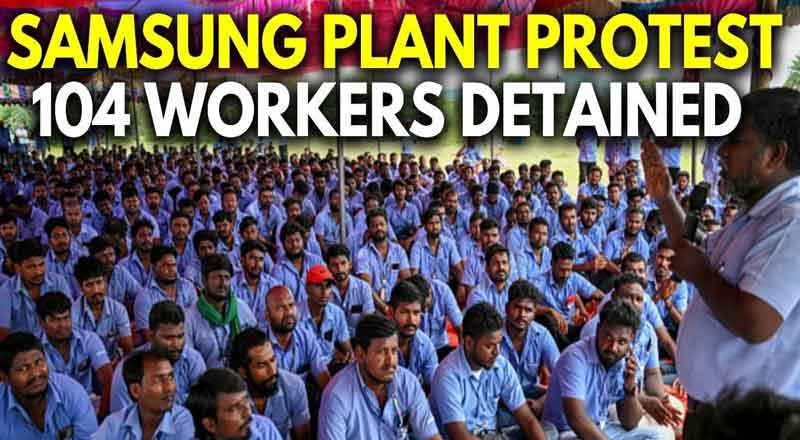Operations at Samsung Electronics’ plant in southern India have been disrupted for the ninth consecutive day as hundreds of employees continue to strike for higher wages. This marks a rare instance of labor unrest for the South Korean electronics giant.
As India’s largest consumer electronics company, Samsung considers the country a critical growth market, where it competes with other major players like LG Electronics.
The plant produces a wide range of products, including televisions, refrigerators, and smartphones. The ongoing strike could have significant implications for the company’s production and market supply in the region.
The strike-hit plant is the smaller of Samsung’s two factories in India and focuses on manufacturing electronic products rather than the company’s well-known smartphones.
Despite its smaller size, the plant plays a crucial role, contributing 20% to 30% of Samsung’s annual revenue of $12 billion in India, according to two sources with direct knowledge of the matter, who spoke on condition of anonymity.
Posters reading “Indefinite Strike” have been displayed outside Samsung’s factory in Sriperumbudur, near Chennai. Hundreds of workers, dressed in company uniforms, have set up tents to shield themselves from the heat as the strike continues.
The striking workers, supported by the Centre of Indian Trade Unions (CITU), are pushing for wage increases, citing issues with low pay and limited collective bargaining opportunities.
The unrest underscores growing concerns about labor conditions in India’s manufacturing sector, which has attracted global companies like Samsung, Foxconn, and Micron due to business-friendly policies and inexpensive labor.
The workers are requesting a raise from their current average wage of 25,000 rupees (€260/$300) to 36,000 rupees (€386/$430) over a three-year period. Although the protests persist, Samsung has initiated discussions with the workers to address the situation.
Experts suggest that strikes might be mitigated if multinational companies more rigorously adhered to labor laws and ensured fair wages. CITU, traditionally active in the auto sector, is now seeking to expand its influence within the electronics industry.





